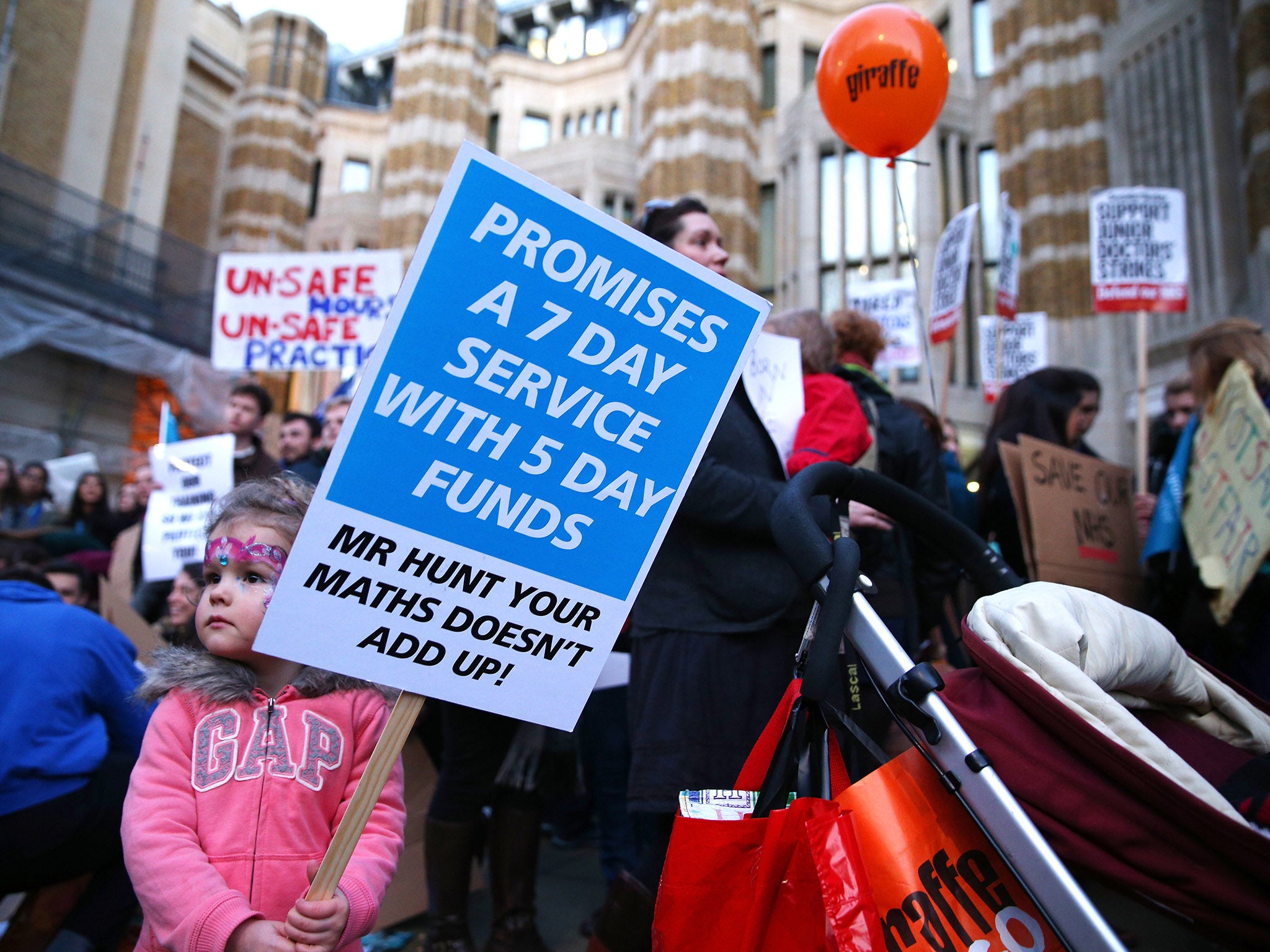NHS hospitals pressured to 'cook the books' and underplay scale of their deficits, says whistleblower
The hospital sector is expecting to breach its target of a £1.8bn controlled deficit this financial year

NHS hospitals are coming under pressure to “cook the books” and underplay the scale of their deficits, a whistleblowing finance director has told MPs.
In anonymous evidence to the House of Commons Public Accounts Committee, the finance director of an unnamed district general hospital says they have become “very concerned” that national regulators are “pressurising NHS providers to potentially mislead the public and Government departments over their true, underlying financial performance”.
The hospital sector is expecting to breach its target of a £1.8bn controlled deficit this financial year, with the National Audit Office projecting the total could be £2.2bn.
However, in their evidence to MPs, the anonymous finance director warns that the overall deficit for NHS providers in England could be as high as £2.9bn – a figure which one leading expert said would not be surprising.
Five years of squeezed funding under the Coalition Government coupled with ever growing demand from an ageing population has left the NHS facing a mounting financial crisis.

Although the Government has pledged to invest £3.8bn into the health service next year, there are fears the sum will disappear into the black hole of growing hospital deficits.
In strict new edicts last month, the Department of Health said that NHS trusts must eliminate their deficits by the end of the next financial year or miss out on £1.8bn of new funding. Entire boards could be suspended at hospitals which fail to balance the books and maintain care standards, officials said, while Health Secretary Jeremy Hunt warned failure “was not an option”.
In their evidence to MPs, the anonymous finance director refers to a case in which an NHS accountant was jailed for fraudulently amending a valuation report in 2008 and writes: “My fear is that some FDs may be pressurised into taking the wrong judgements and making inaccurate claims to keep the regulator at bay…I fear for FDs being put under similar pressure to ‘cook the books’.
They also warn that patient safety and quality of care “may be compromised by trusts’ short term actions to reduce headcount”, adding that the deficit target handed down to their own trust for next year was “£5-10 million lower than what the Board [sic] currently considers it can realistically and, more importantly, safely achieve”, pointing out that £10m is equivalent “to the running costs for six 28 bedded in-patient wards”.
John Appleby, chief economist at the King’s Fund think tank, said that a new survey of finance directors, due to be published later this week, was likely to show deepening concern about the impact of cost-cutting on patient services.
“There may be instances where it’s not possible to deliver cost-cutting without care being affected,” he said. “Although pressure to meet overspending goals this year is immense, next year there is a goal of no deficits across the system. I don’t think the NHS has ever achieved that. It seems incredibly difficult for that to happen,” he told The Independent.
Mr Appleby said he “would not be surprised at all” if the provider sector deficit was as high as £2.9bn for this financial year, though he predicted the figure could still be lower.
“I’m also completely unsurprised that there is pressure, if not to ‘cook the books’, to make judgements about how accounts are presented” he added, although he said he had not seen no evidence of finance directors “under pressure to do anything illegal”.
A spokesperson for NHS financial regulators Monitor and the Trust Development said that hospitals had been asked to submit “challenging but realistic plans for the next year”.
“These plans will be rigorously assessed and agreed by trust boards before final submission,” the spokesperson said. “Where we have asked providers to make operational changes to reduce costs we have always been clear that this must not come at the expense of patient safety…We have also asked finance directors to review accounting estimates to ensure that they are accurate and provide a true reflection of the financial issues the NHS is facing.”
However, Labour’s Shadow Health Secretary Heidi Alexander accused Jeremy Hunt of losing control of NHS finances.
“The fact that some hospital staff even feel under pressure to fiddle the figures is incredibly worrying,” she told The Independent. “Hospitals are facing a financial deficit of over £2 billion this year and on top of that they are being asked to make eye-watering ‘efficiency savings’. Experts have said that efficiencies on this scale could put patient safety at risk.”
Join our commenting forum
Join thought-provoking conversations, follow other Independent readers and see their replies
Comments
Bookmark popover
Removed from bookmarks